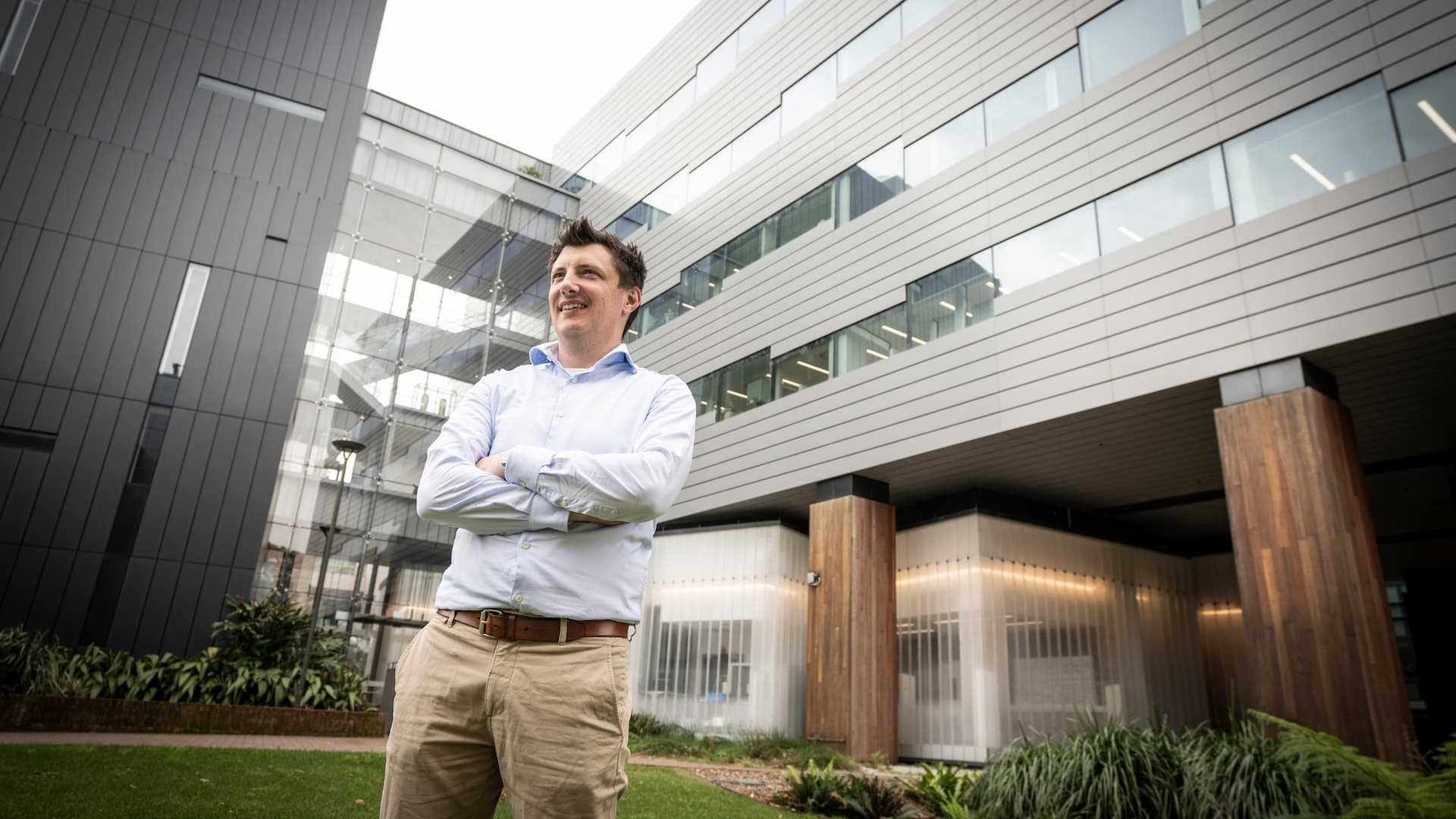Associate Professor Shane Ellis and his team win support for innovative research project into Parkinson's disease

University of Wollongong (UOW) scientist Associate Professor Shane Ellis, along with a team of international collaborators, has secured more than $745,000 in funding from The Michael J. Fox Foundation for Parkinson's Research (MJFF)and the Shake It Up Australia Foundation for an international research project into Parkinson's disease.
The international team brings together diverse expertise including Lipidomics Consulting, Aspect Analytics, Merck Sharp & Dohme LLC, Rahway, NJ, USAand Tel Aviv Sourasky Medical Centre.
With this funding the group will work to identify alterations in the metabolism of selective glycosphingolipids in specific brain regions that contribute to early Parkinson's onset and accelerated progression rates.
Parkinson's disease affects more than six million people worldwide. Glycosphingolipids (GSLs) are natural cellular fats and part of the Parkinson's epidemiology. They are components of cellular membranes that fulfill multiple functional roles, from cell structure and transport to signalling.
Founder and CEO of Lipidomics Consulting Ltd, Dr Kim Ekroos said, "The contribution of glycosphingolipids within Parkinon's disease (PD) brain regions is not fully understood."
Mutations in the GBA1 gene are a major risk for PD. GBA1 encodes an enzyme that breaks down lipids called glucocerebrosidase (GCase). The homozygous mutations in GBA increase the risk for Gaucher disease (GD) while the heterozygous mutations increase the risk for PD. "Our initial work, funded by The Michael J. Fox Foundation, using preclinical models with mutations in the GBA1 gene, suggests selective region-specific lipid enrichments throughout the GBA1 deficient mouse brain," said Dr Ekroos.
"However, we do not know how well the lipid findings translates to human sporadic (iPD) and GBA1-PD patients, including Gaucher disease patients, and how this contributes to Parkinson's disease."
Associate Professor Ellis heads a research group at UOW's Molecular Horizons that is focused on the continued development and application of mass spectrometry imaging (MSI). He is a world-leading expert in lipid MSI, with the International Mass Spectrometry Foundation naming him the 2022 winner of the Jochen Franzen Award for outstanding contributions to innovations in structural, spatial and/or separation analysis with mass spectrometry.
"There is very little known about the role of changes in glycosphingolipid metabolism in distinct brain regions of Parkinson's disease. We know it is important, but we don't know exactly where in the brain, nor which lipids and via what metabolic processes these changes are happening," Associate Professor Ellis said.
"Combining mass spectrometry imaging and high-resolution ion mobility (HRIM) has been a true game changer, permitting us to see what has not been seen before in brains of GBA1 deficient rodents."
"With this grant from The Michael J. Fox Foundation, we can now utilise the same approach, together with advanced deep learning computational approaches, on human Parkinson's disease and Gaucher disease post-mortem brains and identify in what ways the GSL metabolism can be restored."
"Our team of experts can now start to understand and visualise, for the first time, the changes in glycosphingolipid composition occurring in brain regions of human sporadic (iPD) and GBA1-PD patients, including Gaucher disease patients."
It's the second time Associate Professor Ellis and his team have secured funding from The Michael J. Fox Foundation for their research into glycosphingolipids and Parkinson's disease, with their initial project recieving funding in 2020.
In 2022 Associate Professor Ellis and Professor Lezanne Ooi were also awarded more than $1.3M funding from The Michael J. Fox Foundation and the Shake It Up Australia for stem cell research into Parkinson's disease.






